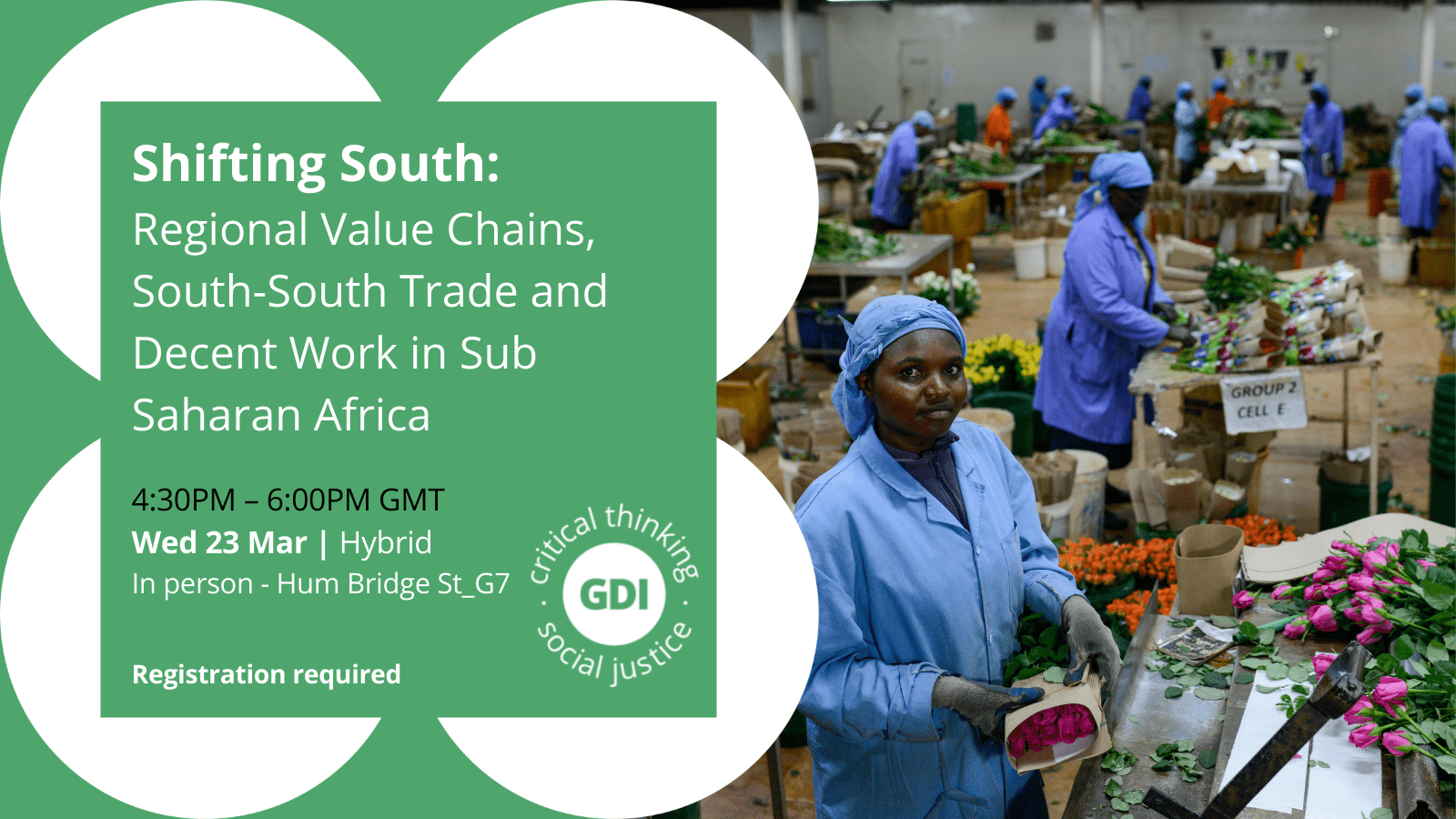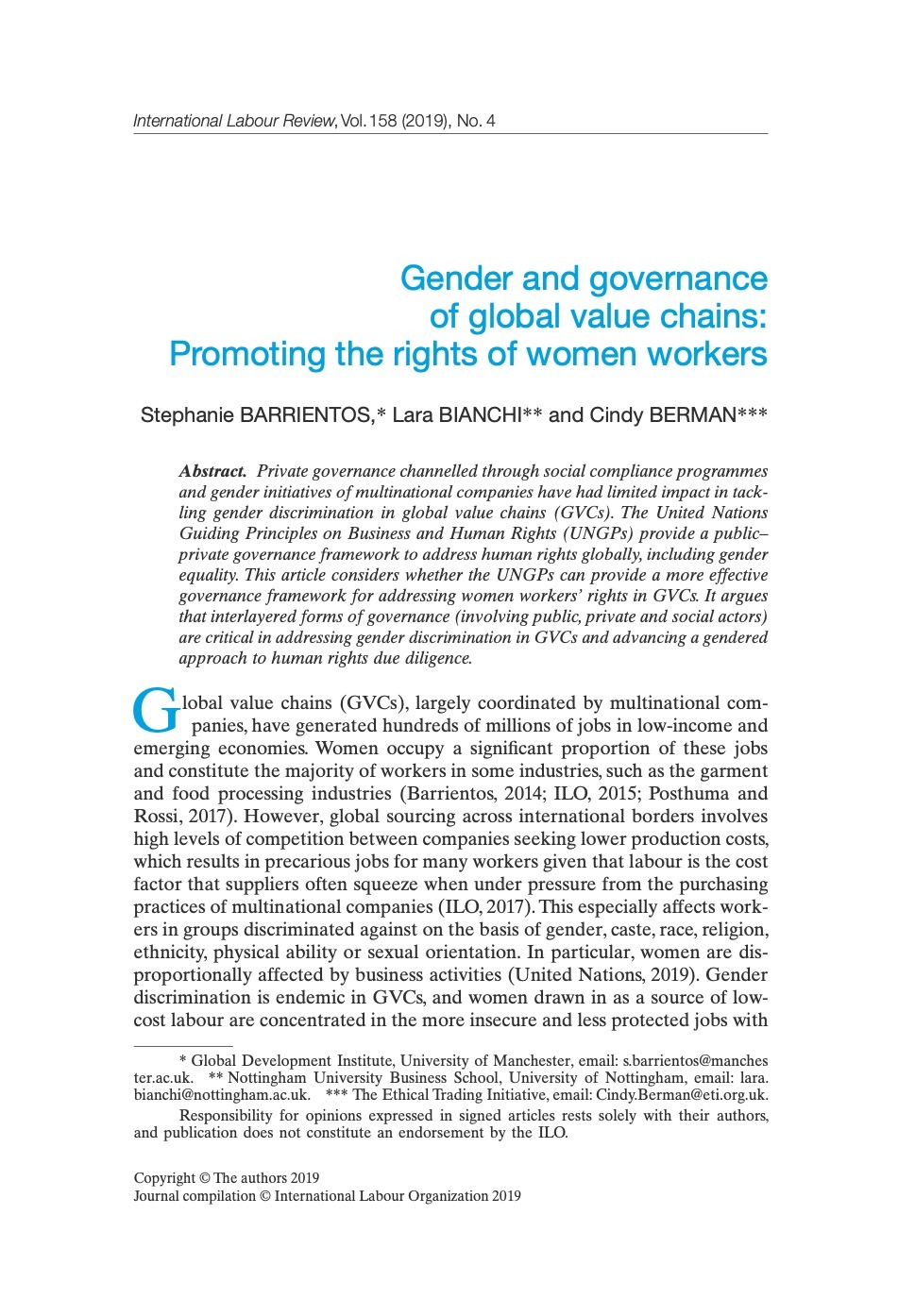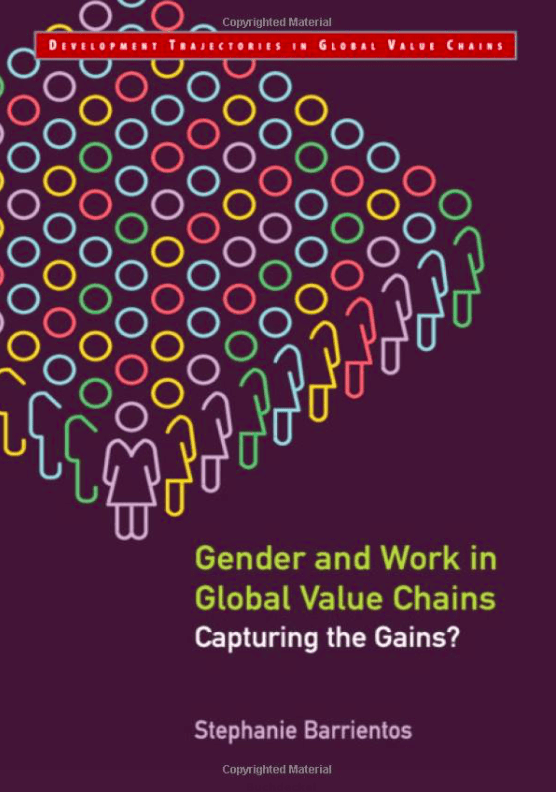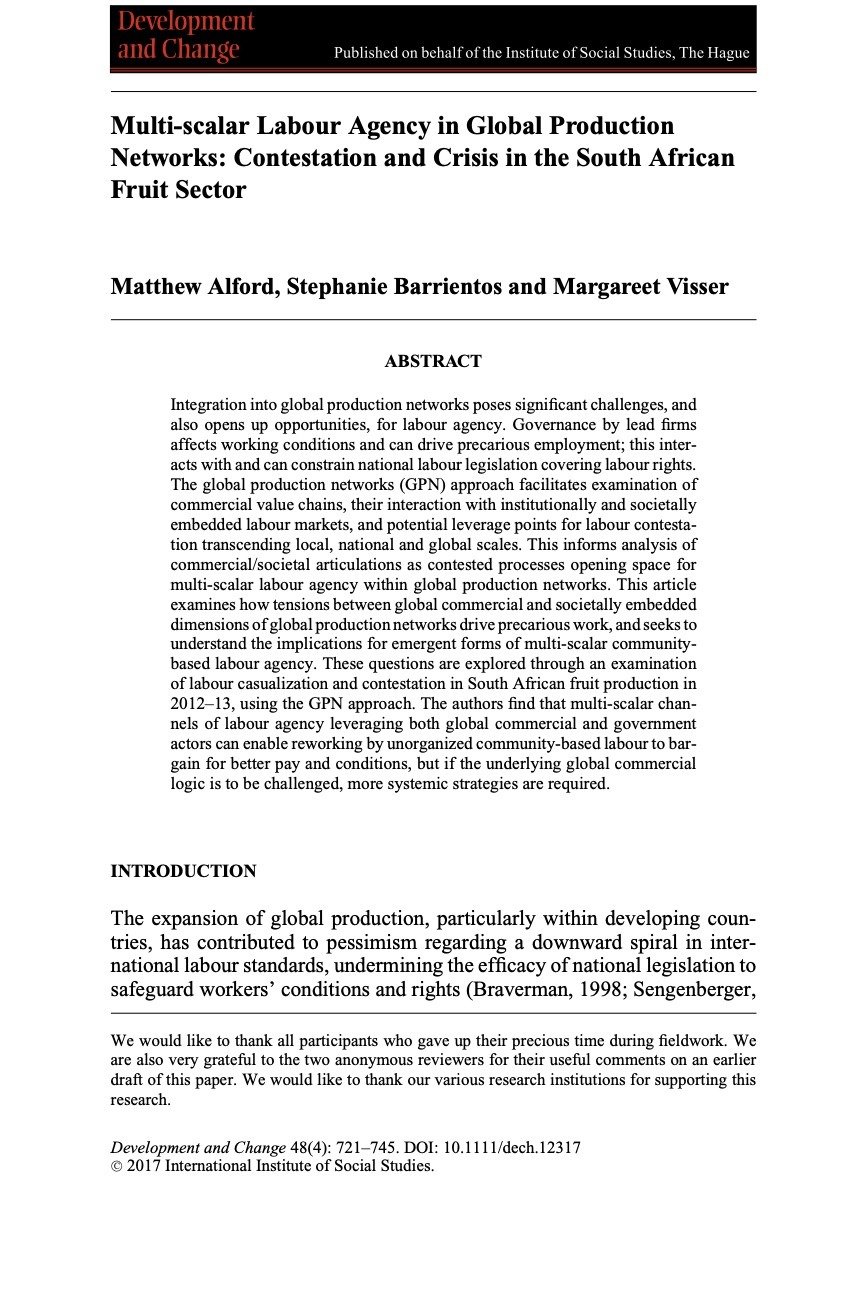︎

Stephanie Barrientos
University of Manchester
Stephanie Barrientos is an Emeritus Professor in the Global Development Institute at The University of Manchester. She was previously a Research Fellow at the Institute of Development Studies, University of Sussex (2000-7). She gained her BA and PhD in Political Economy at the University of Kent. She has researched and published widely on gender, global production, employment, decent work, trade and labour standards, corporate social responsibility, fair trade, and ethical trade. She has undertaken research in Africa, Asia, Latin America and the UK. She coordinated the Capturing the Gains Research Programme (with Prof Gary Gereffi) from 2008-13 examining economic and social upgrading in global production networks. Stephanie has advised and provided training for a number of companies, NGOs and international organisations on issues concerning gender, agribusiness, ethical trade, decent work, and impact assessment, including: ActionAid, Body Shop, Cadbury Plc, CAFOD, Christian Aid, DEFRA, DFID, Gates Foundation, Green & Blacks, CAFOD, ILO, Oxfam, Nike, UNCTAD, UNIDO, World Bank, WIEGO, Women Working Worldwide and Unite. She is on the Advisory Groups of the ILO/IFC Better Work Programme and on the Board of Trustees of the Fairtrade Foundation. Stephanie held a Leverhulme Major Research Fellowship (2013-16) examining gender and work in global value chains. This led to publication of her book Gender and Work in Global Value Chains: Capturing the Gains? Cambridge University Press, 2019, drawing on 20 years of research in the field. She was research lead on the FCDO/DFID flagship programme ‘Work Opportunities for Women’ (WOW) 2018-21. She also led a GCRF/ESRC research programme ‘Shifting South: Decent Work in Regional Value Chains’ focused on horticulture and garments in South and East Africa (2019-2021). Stephanie has been awarded a Leverhulme Emeritus Fellowship (2023-2025) to work on an open access book on Fairer Trade in Global Supply Chains.
MORE ABOUT STEPHANIE BARRIENTOS >Decent work through South-South Value Chains?

Shifting South: Regional Value Chains, South-South Trade and Decent Work in Sub-Saharan Africa

2021
Matthew Alford, Margareet Visser, Stephanie Barrientos
Southern actors and the governance of labour standards in global production networks: The case of South African fruit and wine
Recent studies highlight the emergence of standards, including multi-stakeholder initiatives developed and applied within the global South where supplier firms are usually based. This trend has created a complex ethical terrain whereby transnational standards flow through global production networks ...

2019
Stephanie Barrientos, Lara Bianchi, and Cindy Berman
Gender and governance of global value chains: Promoting the rights of women workers
Private governance channelled through social compliance programmes and gender initiatives of multinational companies have had limited impact in tackling gender discrimination in global value chains (GVCs). The United Nations Guiding Principles on Business and Human Rights (UNGPs) provide a public–...

2019
Stephanie Barrientos
Gender and Work in Global Value Chains
This book focuses on the changing gender patterns of work in a global retail environment associated with the rise of contemporary retail and global sourcing. This has affected the working lives of hundreds of millions of workers in high-, middle- and low-income countries. The growth of contemporary ...

2017
Matthew Alford, Stephanie Barrientos, Margareet Visser
Multi-scalar Labour Agency in Global Production Networks: Contestation and Crisis in the South African Fruit Sector
Integration into global production networks poses significant challenges, and also opens up opportunities, for labour agency. Governance by lead firms affects working conditions and can drive precarious employment; this interacts with and can constrain national labour legislation covering labour rig...

